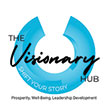Breaking Free from the “Excuse Trap”
Embracing the Values of Honesty and AccountabilityBreaking Free from the “Excuse Trap”
Embracing the Values of Honesty and Accountability
Courtesy of The Visionary Hub

Excuses might seem like good reasons for avoiding things, but if we’re not careful, they can stop us from achieving our goals and living our best lives. Often, we use excuses to explain why we can’t do something, and instead of trying to find other ways, we give up. But if we’re honest with ourselves and take responsibility for our CHOICES, we’ll see that we won’t need excuses anymore. When we focus on our goals, excuses won’t matter as much, and challenges can turn into opportunities that help us become stronger and more resilient.
Not being honest with ourselves and others, and resorting to excuses, can reflect certain aspects of our personalities and behaviours. Some individuals tend to avoid confrontations or uncomfortable situations using excuses as a way to postpone, or sidestep, difficult conversations or actions. There are people who have a strong desire to please others and may use excuses to avoid disappointing or upsetting people.
When we are honest with ourselves, we are able to see and become aware of these personality traits within ourselves, and understand how they impact relationships in our lives, with ourselves and others.
There may be those who are uncomfortable with direct communication, or fear confrontation, and may resort to excuses to evade difficult discussions. Others who struggle with procrastination may use excuses as a way to delay tasks or responsibilities. When insecurity and self-doubt are involved, individuals may use excuses as a defense mechanism to protect themselves from perceived failure or criticism. There may be some people that have a personality disposition that makes it difficult for them to take responsibility for their actions, or decisions, and excuses can be a way to deflect blame onto external factors.
Excuses, in the Big Picture, can drain our energy in a different way as well, especially when it comes to our thoughts and words. Let’s say you’re asked for money, but you say you can’t afford it as an excuse. When we do this, it’s like we’re inviting a feeling of not having enough, or being limited, into our lives. It’s the same when we pretend to be sick, or make up other untrue reasons. We might think excuses make life simpler, but they actually make things more complicated by hiding the truth. When we commit to what’s most important to us, take responsibility for our choices, and tell others the truth, we won’t need excuses. That way, we’ll have more energy for the things we truly enjoy.
Whether it is to recognize how our personality style influences the use of excuses, or through our thoughts and words, this can be a valuable step in personal growth and improved communication. By understanding these connections, individuals can work on addressing their unique tendencies, and build healthier habits that lead to more authentic interactions and greater personal fulfillment.
Being honest, when making excuses, can have a profound positive impact on one’s life. It encourages transparency in communication, leading to stronger and more trusting relationships with others. When we’re truthful about our limitations, or reasons for not doing something, it fosters understanding and respect. Moreover, honesty helps us confront our own shortcomings and challenges, pushing us to find constructive solutions, rather than relying on excuses. By choosing honesty over excuses, we not only reduce stress and anxiety, but also boost our self-esteem and personal growth, leading to a more authentic and fulfilling life, built on trust, honesty, and genuine connections with others.
Laurie Renton owned her own financial services firm for 27 years. Her dream was to create a space where she could guide others through a process of getting unstuck in their lives. She acquired her leadership certification, her life coaching, as well as many other courses that led her to being a co-founder of the Visionary Hub with her partner Sylvia Henheffer. Sylvia realized that her values of freedom and flexibility were not being fulfilled in her corporate job and she ventured out into entrepreneurship and into partnership at The Visionary Hub, located in Yorkton, SK. You are invited to join them in-person or online for an experience of new possibilities… it is truly transformative. For more information visit thevisionaryhub.org, Facebook, or call (306) 783-7737. Also see the display ad on page 30 of the 29.4 November/December issue of the WHOLifE Journal). |
